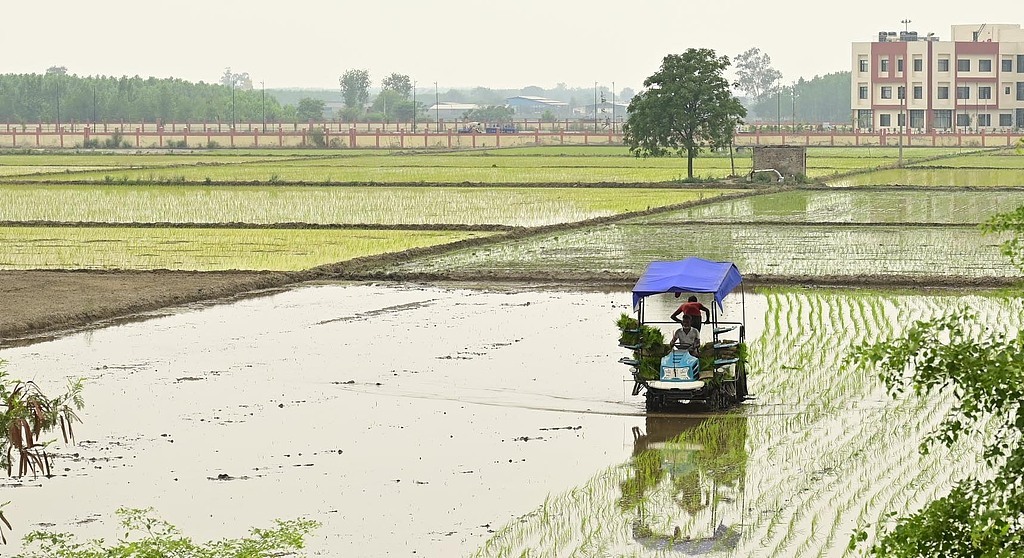According to a June 30 report in India’s Financial Express, Finance Minister Nirmala Sitharaman stated in an interview that agriculture and dairy products are two red lines in the India-US trade negotiations, asserting that”we will never do anything that could weaken our domestic agriculture or the position of our farmers.” A July 1 report in the Economic Times confirmed that a senior Indian official had reiterated this strengthened stance, particularly regarding tariff reduction demands on agricultural and dairy products.

On June 22, farmers planted rice seedlings in the suburbs of Ludhiana, India. (Visual China)
India is seeking a trade agreement with the United States before the deadline for a reciprocal tariff suspension, failing which the US will impose a 26% tariff on Indian goods. The Economic Times reports that the White House stated on Monday that a trade deal with India may be announced”soon,” but offered no specific timeline or details of the negotiations.
Sitharaman stated that agriculture and dairy products are sensitive areas, requiring a cautious approach during discussions. However, she also mentioned that India could seek better market access in certain areas while considering reciprocal market opening. The Economic Times reported that the US is pushing for market access in apples, tree nuts, genetically modified crops, dairy products, and electric vehicles, while India seeks relief in labor-intensive sectors such as textiles, apparel, leather goods, and chemicals.
“Agricultural liberalization remains the biggest hurdle,”the Economic Times reported, citing analysts who said that cutting tariffs on US agricultural products could threaten India’s food security and expose small farmers to global price volatility. Politico recently also reported that the biggest challenge in US-India negotiations lies in opening up India’s agricultural market, especially in the areas of genetically modified crops and dairy products. The report noted that as a predominantly Hindu nation, India has significant religious concerns about importing bovine byproducts. (Yuan Jirong)